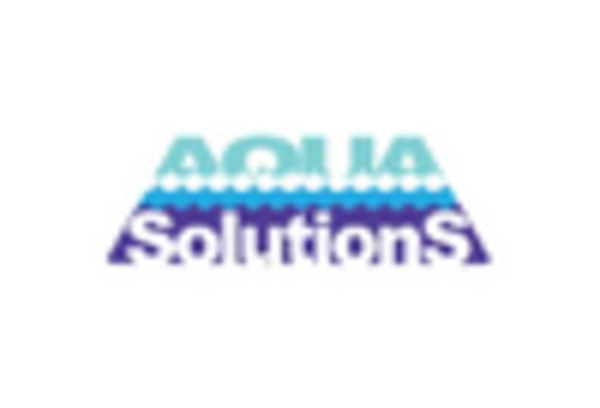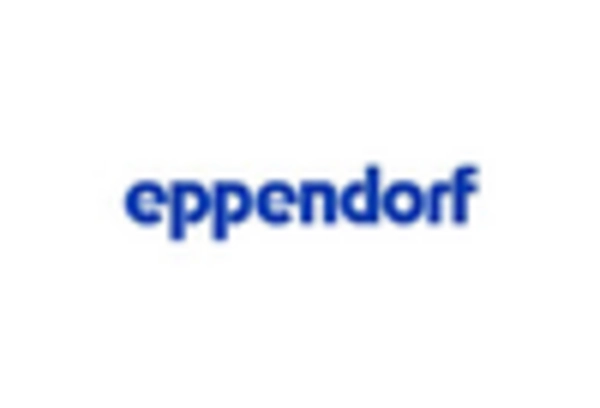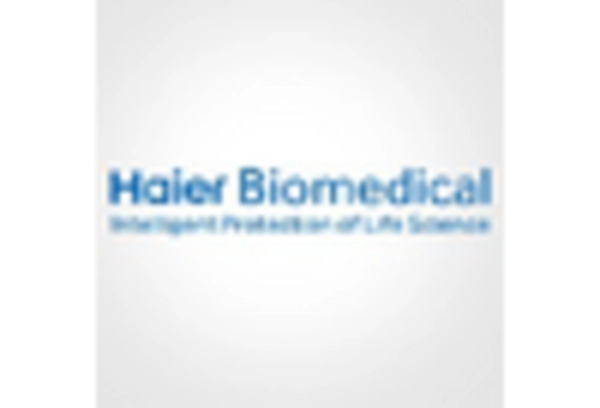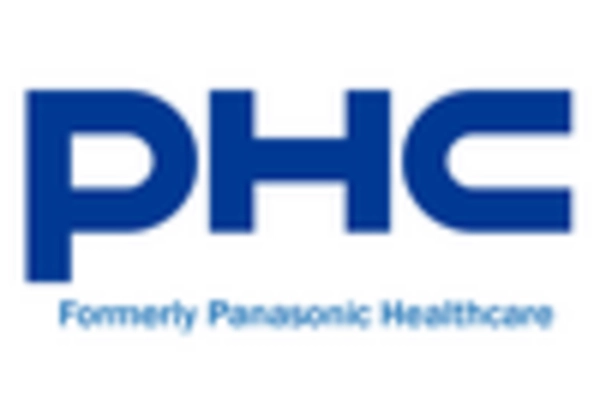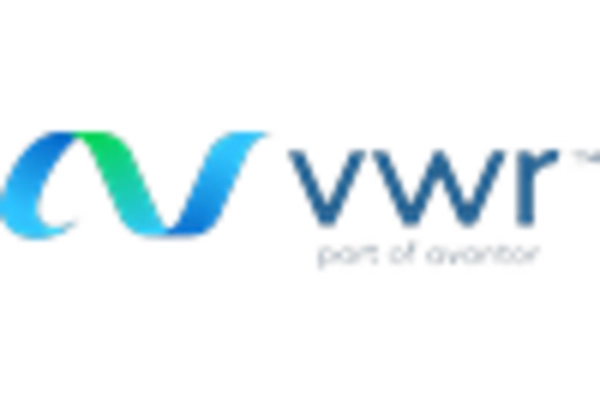Rising Demand for Vaccines
The Medical Cold Storage Market is significantly influenced by the rising demand for vaccines. With the increasing awareness of preventive healthcare and immunization programs, the need for effective storage solutions for vaccines has surged. The World Health Organization indicates that vaccine production is expected to grow, necessitating robust cold storage systems to maintain efficacy. As a result, the market for medical cold storage is projected to expand, with an estimated growth rate of around 8% annually. This demand is further fueled by the expansion of vaccination campaigns in various regions, which require reliable cold chain logistics to ensure that vaccines are stored and transported at optimal temperatures. Consequently, the Medical Cold Storage Market is poised for substantial growth as healthcare providers seek to enhance their storage capabilities.
Increasing Healthcare Expenditure
The Medical Cold Storage Market is experiencing growth due to rising healthcare expenditure across various regions. Governments and private sectors are investing significantly in healthcare infrastructure, which includes the establishment of advanced medical facilities. This trend is evident as healthcare spending is projected to reach approximately 10 trillion USD by 2025. Such investments necessitate the implementation of efficient cold storage solutions to preserve sensitive medical products, including vaccines and biologics. As healthcare facilities expand, the demand for reliable cold storage systems is likely to increase, thereby driving the Medical Cold Storage Market forward. Furthermore, the emphasis on improving patient care and safety is pushing healthcare providers to adopt state-of-the-art cold storage technologies, which could further enhance market growth.
Growth of E-commerce in Healthcare
The Medical Cold Storage Market is witnessing growth due to the expansion of e-commerce in the healthcare sector. The rise of online pharmacies and telemedicine platforms has created a need for efficient cold storage solutions to ensure the safe delivery of temperature-sensitive products. As e-commerce continues to gain traction, the demand for reliable cold chain logistics is likely to increase, necessitating advanced cold storage systems. Market analysts project that the e-commerce healthcare market could reach over 200 billion USD by 2025, further driving the need for effective cold storage solutions. This trend highlights the importance of maintaining product integrity during transportation and storage, thereby propelling the Medical Cold Storage Market forward. As healthcare providers adapt to this shift, the integration of cold storage solutions into e-commerce operations will become increasingly vital.
Regulatory Compliance and Standards
The Medical Cold Storage Market is significantly impacted by stringent regulatory compliance and standards set by health authorities. These regulations ensure that medical products, particularly pharmaceuticals and biologics, are stored under specific conditions to maintain their integrity and efficacy. Compliance with these standards is essential for healthcare providers and storage facilities, as failure to adhere can result in severe penalties and loss of credibility. The increasing focus on regulatory compliance is driving the demand for advanced cold storage solutions that meet these requirements. As a result, the market is projected to grow, with an emphasis on systems that can provide detailed documentation and monitoring capabilities. This trend indicates that the Medical Cold Storage Market will continue to evolve in response to regulatory demands, ensuring that healthcare providers can maintain compliance while delivering safe and effective medical products.
Technological Innovations in Cold Storage
Technological advancements play a crucial role in shaping the Medical Cold Storage Market. Innovations such as IoT-enabled monitoring systems and energy-efficient refrigeration technologies are transforming how medical products are stored. These advancements not only enhance the reliability of cold storage solutions but also improve operational efficiency. For instance, the integration of smart sensors allows for real-time temperature monitoring, ensuring that products remain within required temperature ranges. The market is expected to witness a compound annual growth rate of approximately 7% as healthcare facilities increasingly adopt these technologies. Moreover, the development of automated storage systems is likely to streamline inventory management, further driving the Medical Cold Storage Market. As technology continues to evolve, it is anticipated that the market will adapt to incorporate these innovations, leading to improved storage solutions.
